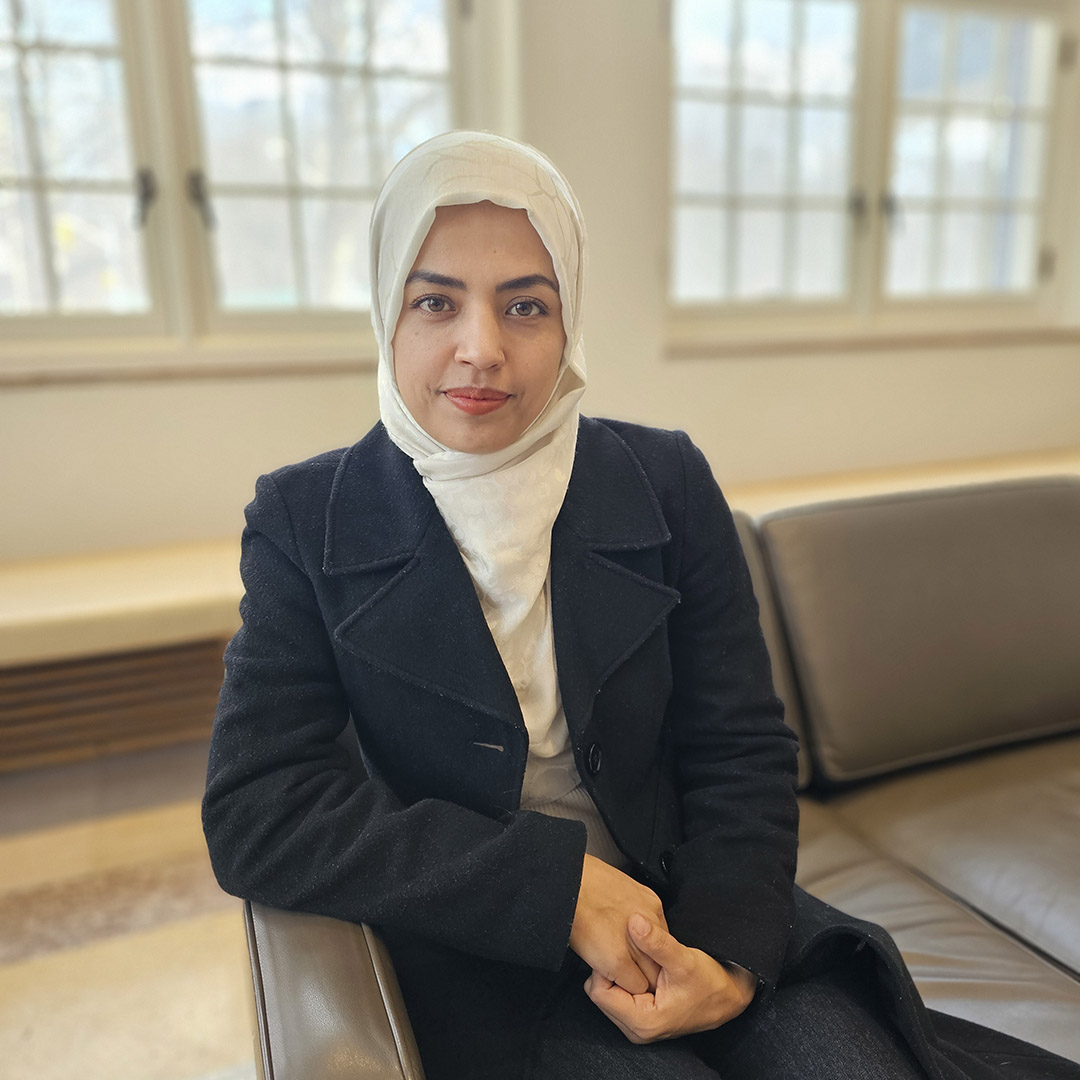
While at the Faculty of Law, Judge Froozanfar will be conducting research on the Canadian criminal justice system’s use of parole by adopting a comparative law approach to understanding the use of parole in Afghanistan and Canada. She will be supported by Professor Yasmin Dawood and Superior Court Justice Madam Anne M. Molloy.
Judge Hamida Froozanfar spent 40 days in hiding within the city of Kabul after the Taliban seized control of Afghanistan’s capital on Aug. 15, 2021.
Froozanfar studied law and jurisprudence for her bachelor’s degree at Khatam Al-Nabieen University and completed a Master of Criminal Law and Criminology from Al-Mustafa International University. She became a criminal division judge in the Primary Court of Kabul, where she tried cases including murder, kidnapping, robbery, battery, and assault, for more than six years.
“When the Taliban took the control of our country it was unimaginable,” she says. “Everything we worked hard for in the last 20 years was lost in one night.”
Afghanistan’s female judges went into hiding.
“We were afraid,” she says, but adds the International Association of Women Judges (IAWJ) gave them hope.
"At that time, I was nine months pregnant with my baby. It needed to be a Caesarean section [surgical] birth, but I would not be able to go to any hospital.”
The IAWJ assisted Froozanfar, helping her leave Kabul for Athens, Greece where her child was born.
“Soon after arriving in Greece, the Government of Canada announced they will accept women judges of Afghanistan as refugees, and so we came to Canada.”
Through the support of the Open Society University Network’s Afghan Challenge Fund (ACF) and the generosity of University of Toronto alumni Jean Fraser (JD 1975) and Thomas F. Rahilly (LLB 1969), Froozanfar has a renewed sense of hope.
“I am happy to be in Canada because my family is safe. I lost everything – my house, my job and my life as I knew it. Now, I have a chance to start life from a new place, at U of T where I will do master’s studies and research related to my past job.”
Judge Froozanfar has joined U of T’s Faculty of Law community of scholars, including legal practitioner Ghizal Haress, who served as Afghanistan’s first presidential ombudsperson.
“In August of 2021 my thoughts were not well composed but my immediate reaction was this: these brave, smart women judges of Afghanistan represented a brighter future for their country but suddenly that future was denied,” says Fraser of her donation in support of Froozanfar’s fellowship.
“They and their families were likely in immediate danger, and the legal community in Canada should find a way to help them. I am pleased we have been able to achieve this modest project and offer a warm welcome to Hamida.”
Froozanfar is an advocate of parole and the principle of offender rehabilitation within the Afghan penal law, whereas parole of Canadian criminal offenders is highly contested. As part of her fellowship, Froozanfar will undertake a comparative study on the use of parole within the two judicial systems.
“To work in criminal justice system in Canada, or if the situation changes, I would love to go to work for my country and especially for women and the judicial system of Afghanistan.”
Superior Court Justice Madam Anne M. Molloy, who has been a criminal law judge for 27 years in Ontario (Toronto Region), will also help mentor Froozanfar during her fellowship.
“This fellowship gives me hope,” says Froozanfar. "Today women of Afghanistan are not allowed to study. Women are not allowed to work. They are not allowed to go anywhere.”
Read more about Judge Froozanfar in the current issue of the The Advocates' Journal, Winter 2023, Vol. 42, No. 3

